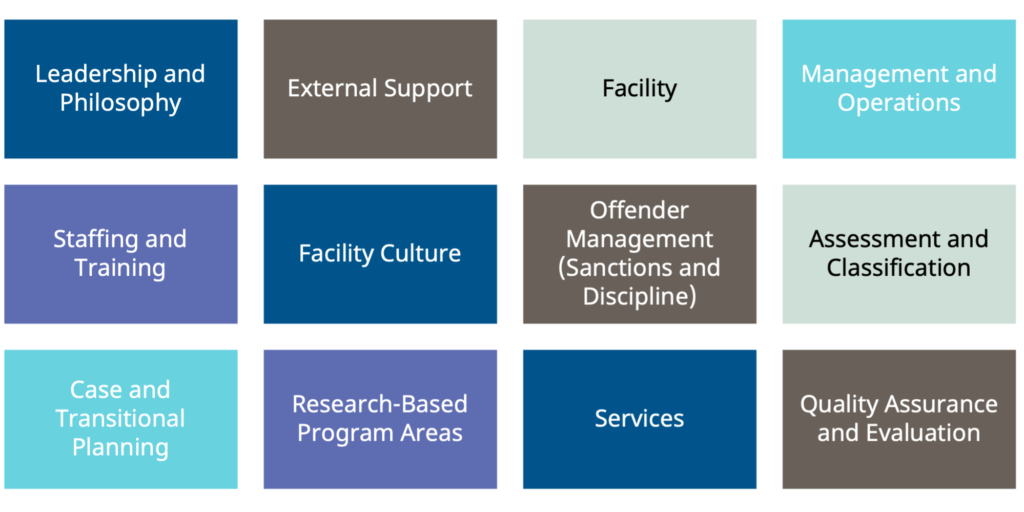Project
Gender-Informed Practices Assessment (GIPA)
Overview
In 2008, the National Resource Center on Justice-Involved Women (NRCJIW), in collaboration with the National Institute of Corrections, developed the Gender-Informed Practice Assessment (GIPA) to expand the use of gender and evidence-based practices in correctional facilities for women. The GIPA represents a compilation of the research and promising practices across multiple facets of facility management and operations with women in custody.
Our Approach
The GIPA protocol is conducted on-site by a team of external evaluators and provides a baseline measure of how closely agency policies and practices align with the prevailing research. It assesses policies and practices using a multi-method approach across 12 domains:

NRCJIW’s work on this project includes:
- Conducting a pre-planned, comprehensive, multi-day site visit to administer the GIPA
- Creating a report that identifies strengths, challenges, and opportunities and that highlights priority targets that can be integrated into a strategic plan
- Collaborating with sites to develop a strategic plan based on GIPA findings
The NRCJIW has helped facilitate the GIPA in several states, including Illinois, Iowa, Michigan, Missouri, New York, Oregon, South Carolina, and Washington. NRCJIW staff have also worked with the Bureau of Prisons to conduct a GIPA in a federal correctional institution for women.
The Impact
Sites that have implemented the GIPA have reported the following benefits:
- The adoption of actuarial assessments that include research on women’s pathways to justice system involvement
- An increase in programs and services demonstrated to decrease recidivism
- A reduction in disciplinary reports and grievances
- Improved safety and interactions between staff and women in custody
Issue Area
Project Website
Partners
Related Resources
Related Projects
CEPP Justice Policy ...
CEPP seeks to ensure that currently and formerly incarcerated people have opportunities to apply their lived experience, collective skills, and intell...
Gender Justice Pretr...
This project emerges from the urgent need to interrupt a 50-year trend of rising pretrial detention and incarceration of women, despite them having th...





